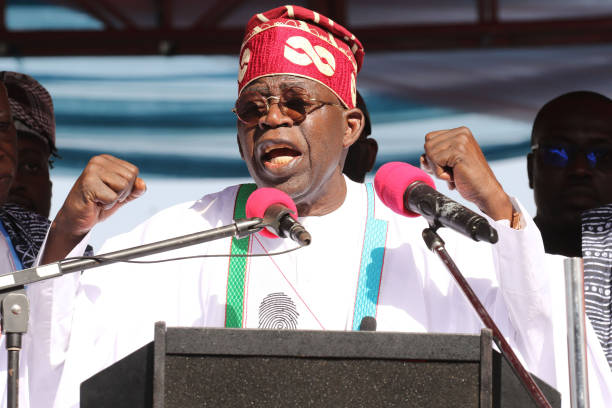Less than a week after over 200 lives were lost in a devastating attack on an Internally Displaced Persons (IDP) camp in Benue State, the mood in parts of Makurdi has turned confusingly festive. On the day of President Bola Ahmed Tinubu’s official visit to the state, political processions and colourful rallies were seen along major streets, raising eyebrows across the nation and among grieving families.
While such expressions of support for national leadership are not uncommon during presidential visits, the juxtaposition of grief with celebration, so soon after a humanitarian tragedy, has prompted a deeper reflection on how the nation handles trauma, justice, and dignity.

A President Responds Amid Crisis
President Tinubu’s presence in Benue comes after several weeks of escalating violence in the region. Earlier this month, the President ordered the Chief of Army Staff to temporarily relocate to Benue—a strong move reflecting the seriousness of the security situation. However, with continued attacks despite military reinforcement, a direct presidential visit has become essential not just for reassurance, but for decisive intervention.
> “The President’s visit is both symbolic and strategic. It presents an opportunity for coordinated, long-term security and humanitarian reform in the Middle Belt,” said Dr. Abdul Malik, a national security analyst.
Time to Rethink the Role of NCFRMI
The IDP camp where the massacre occurred is under the oversight of the National Commission for Refugees, Migrants and Internally Displaced Persons (NCFRMI)—the agency statutorily responsible for the protection and welfare of displaced Nigerians.
While the Commission has taken steps in recent years to expand shelter, education, and reintegration programs, it is clear that serious gaps in security and infrastructure remain. The attack raises urgent questions:

Were the camps adequately secured?
What early warning systems or intelligence collaboration exist between NCFRMI and the military?
Were there proposals or requests from local authorities that went unaddressed?
These are not accusations but calls for self-audit and urgent redirection.
> “NCFRMI must be empowered and held accountable—not only for relief but for prevention. Their role must evolve from response to risk management,” said Josephine Abah, a humanitarian policy consultant.
Governor Alia: Leadership at a Difficult Crossroads
Governor Hyacinth Alia, a respected cleric-turned-politician, is navigating perhaps the most complex security crisis of his tenure. As a moral voice and state executive, expectations are high for him to lead a sober, people-centered response that prioritizes:
Declaring days of mourning to honor the victims
Establishing a state-level humanitarian security task force
Coordinating more closely with federal agencies on IDP management and rural policing
Educating communities against the politicization of grief
Benue has a long history of displacement, and its people are often victims of cycles of violence. This moment requires leadership that transcends politics and affirms dignity.
> “A state that mourns with sincerity rebuilds with strength. This is a moment for the Governor to lead a healing process anchored in truth, justice, and reform,” remarked Dr. G. Fraser, MFR, Governance & Perception Management Consultant.
Military and Security Architecture: Urgent Review Needed

While the military has increased presence in Benue, the effectiveness of operations remains a concern. Intelligence coordination, community trust, and rules of engagement must all be reassessed.
Security experts recommend:
Establishing a dedicated joint task force for Middle Belt security, with embedded intelligence cells
Community-based security integration, especially in IDP host communities
Rapid-response capabilities for early warning signs reported by local leaders
This moment also offers the military a chance to regain public confidence by working transparently and proactively with civilians and state authorities.
Quote of the Day
“When tragedy strikes, true leadership is measured by how we respond—not with noise, but with dignity, direction, and decisive reform.”
— Dr. G. Fraser, MFR

Conclusion: From Grief to Action
The events in Benue are not just a test of empathy—they are a test of governance. While expressions of support for the President are valid, they should not overshadow the need for sober reflection, national mourning, and coordinated action.
The federal government, the Benue State administration, the Nigerian military, and NCFRMI must now come together to ensure that this never happens again—not just in Benue, but anywhere in Nigeria.
The children lost must not die in vain. Their graves must mark a turning point, not a forgotten point. And the time for that turn is now.
Headlinenews.news Special Investigative Report.




